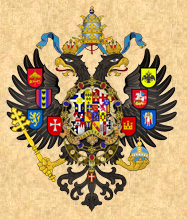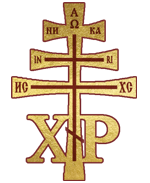|
Authentic Diversity, Equity, & Inclusion from the Office of His Apostolic Highness the Prince-Bishop of Rome-Ruthenia
10 February 2025 Read also the Canonical Status of the Church. Read also about the Temporal Rights of the Church.
From
an Orthodox, Apostolic, Catholic Christian standpoint, the true vision
of Diversity, Equity, and Inclusion (DEI) is firmly grounded in the
teaching of Christ and the life of the Church, rather than in secular
ideologies that often distort these concepts.Such secular distortions typically arise from the postmodern errors. 1. Diversity (Разнѡобразїе въ единствѣ - Difference within Unity)The Holy Church of Christ embraces diversity, not as an end in itself, but as part of the Divine Order of Creation.
The Apostle Paul makes this clear in 1 Corinthians 12:12-27, where he
describes the Church as the Body of Christ, made up of many members
with different roles, yet unified in Christ. The Church has always embraced national and
cultural expressions—whether in Holy Rus’, Byzantium, or other nations
and cultures built on faith—as part of God’s providence, provided they
serve the higher reality of the Kingdom of Heaven. These identities are
not ends in themselves but means of glorifying God through distinct
liturgical traditions, iconography, and cultural expressions of faith.
The Apostolic, Orthodox, and Catholic Church has always been diverse,
spanning various cultures and ethnic groups while maintaining a single,
united faith. 2. Equity (Правда Бжїа - The Justice of God)Equity in an Orthodox sense is not about forced equal outcomes but rather is about true justice rooted in divine mercy and righteousness.
Christ taught that God’s justice is not about worldly fairness, but
about lifting up the lowly and humbling the proud (Luke 1:52). Thus, true equity in Orthodoxy is about
spiritual equality before God, where all have the same opportunity for
salvation, not artificial worldly redistribution or quotas. 3. Inclusion (Призванїе ко покаянїю - The Invitation to Repentance)Inclusion, in an Orthodox sense, is not about
uncritical acceptance of all beliefs or behaviors, but about welcoming
all people in the hospitality of Christ, inviting them to repentance
and transformation in Christ. Christ welcomes sinners not to affirm
them in sin, but to heal them (John 8:11: "Go and sin no more"). True inclusion in the Apostolic, Orthodox, and
Catholic Church is about unity in truth (Истина), not compromising the
faith to accommodate the fleeting philosophies of the world. As the
world conitnually changes its ways, the Holy Trinity and the Divine
Truth remain the same. The Church’s mission is not to conform to
society, but to call society to Christ. Conclusion: True DEI is Found in Christ and His ChurchThe Apostolic, Orthodox, and Catholic Church
has always lived out true diversity, equity, and inclusion by calling
all people to holiness, serving the marginalized, and fostering a
community where all are united in Christ. However, this is radically
different from modern secular DEI, which often replaces spiritual
transformation with identity politics and ever-shifting ideological
conformity.
|
|
|
|

